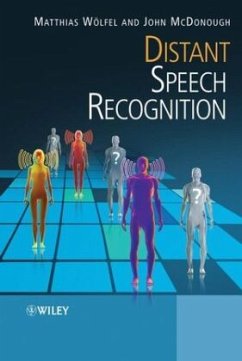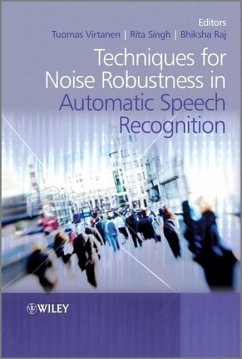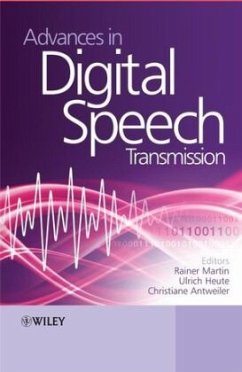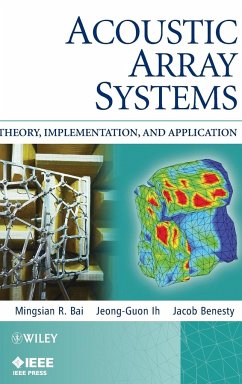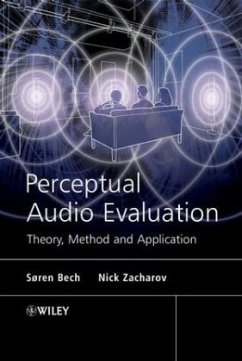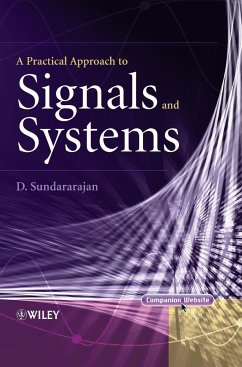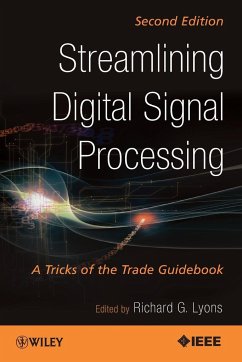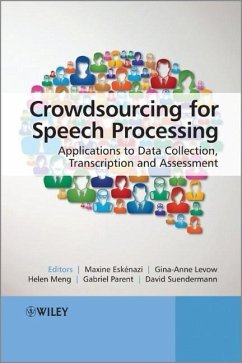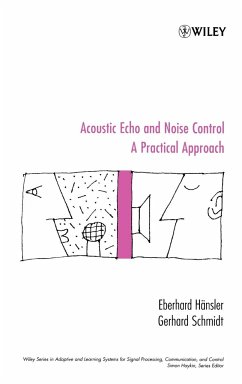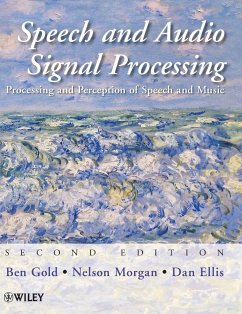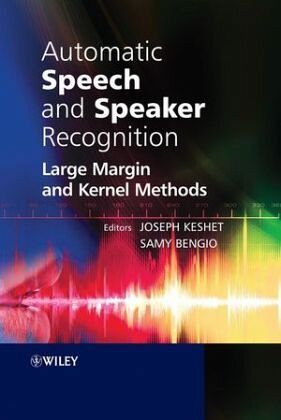
Automatic Speech and Speaker Recognition
Large Margin and Kernel Methods
Ed. by Samy Bengio and Joseph Keshet

PAYBACK Punkte
62 °P sammeln!
A key resource for machine learning and speech recognition researchers and engineers, Large Margin and Kernel Methods for Speech Recognition unites research related to speech and speaker recognition based on recent advances in large margin and kernel methods. The first part of the book presents theoretical and practical foundations, from support vector machines to large margin methods for structured learning. The second part is dedicated to acoustic modeling of continuous speech recognizers. The third part introduces large margin methods for discriminative language modeling. The last part of the book discusses applications of speaker verification and identification.
This book discusses large margin and kernel methods for speech and speaker recognition
Speech and Speaker Recognition: Large Margin and Kernel Methods is a collation of research in the recent advances in large margin and kernel methods, as applied to the field of speech and speaker recognition. It presents theoretical and practical foundations of these methods, from support vector machines to large margin methods for structured learning. It also provides examples of large margin based acoustic modelling for continuous speech recognizers, where the grounds for practical large margin sequence learning are set. Large margin methods for discriminative language modelling and text independent speaker verification are also addressed in this book.
Key Features:
Provides an up-to-date snapshot of the current state of research in this field
Covers important aspects of extending the binary support vector machine to speech and speaker recognition applications
Discusses large margin and kernel method algorithms for sequence prediction required for acoustic modeling
Reviews past and present work on discriminative training of language models, and describes different large margin algorithms for the application of part-of-speech tagging
Surveys recent work on the use of kernel approaches to text-independent speaker verification, and introduces the main concepts and algorithms
Surveys recent work on kernel approaches to learning a similarity matrix from data
This book will be of interest to researchers, practitioners, engineers, and scientists in speech processing and machine learning fields.
Speech and Speaker Recognition: Large Margin and Kernel Methods is a collation of research in the recent advances in large margin and kernel methods, as applied to the field of speech and speaker recognition. It presents theoretical and practical foundations of these methods, from support vector machines to large margin methods for structured learning. It also provides examples of large margin based acoustic modelling for continuous speech recognizers, where the grounds for practical large margin sequence learning are set. Large margin methods for discriminative language modelling and text independent speaker verification are also addressed in this book.
Key Features:
Provides an up-to-date snapshot of the current state of research in this field
Covers important aspects of extending the binary support vector machine to speech and speaker recognition applications
Discusses large margin and kernel method algorithms for sequence prediction required for acoustic modeling
Reviews past and present work on discriminative training of language models, and describes different large margin algorithms for the application of part-of-speech tagging
Surveys recent work on the use of kernel approaches to text-independent speaker verification, and introduces the main concepts and algorithms
Surveys recent work on kernel approaches to learning a similarity matrix from data
This book will be of interest to researchers, practitioners, engineers, and scientists in speech processing and machine learning fields.



